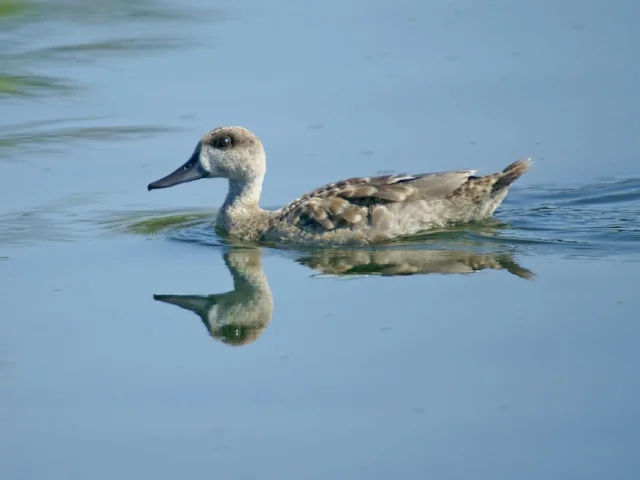Saving the 'Cradle of Civilisation'
13a16e26-2419-481d-8671-3613b47988db

Often referred to as the 'Cradle of Civilisation', the Mesopotamian Marshes of Iraq have now become protected as Wetlands of International Importance.
Almost destroyed in the 1990s due to the the punitive drainings of the Saddam Hussein regime, the Central Marshes and Hammar Marsh in the southern part of Iraq have recently been designated by the country's government as Wetlands of International Importance under the Ramsar Convention on Wetlands. The two new Ramsar sites, together with that at the existing Hawizeh Marsh, form the last remnants of the once extensive Mesopotamian Marshlands in southern Iraq.
The lush and richly bio-diverse marshes are often referred to as the 'Garden of Eden' or the 'Cradle of Civilisation' since their recorded history goes back as far as the 4th millennium BC, when the first literate societies appeared. The Mesopotamian Marshes were once entirely populated by the Marsh Arabs who used to build their floating islands and reed houses in the marshes, developing entire villages linked by a network of channels. Not only is the area of extraordinary historical and cultural value, but it also holds a range of internationally and regionally important ecosystems.
The marshes serve as an important staging and wintering site for globally threatened birds including Basra Reed Warbler, Marbled Duck and Greater Spotted Eagle. The marshes also support the endangered Euphrates Softshell Turtle and the vulnerable Smooth-coated Otter.
In the past, the important services provided by the marshes were disrupted or degraded by extensive draining that began in the 1950s, and accelerated in the 1990s because of war and land reclamation under the Saddam Hussein regime. Restoration has been carried out since 2003, but has not been able to completely re-flood the marshes to their original extent due to declining rainfall and the more recent construction of dams. Due to this, less water has been entering Iraq through the Tigris and Euphrates rivers. In the recent years the conditions of marshes have also worsened due to severe droughts.
By adding all the major wetlands that form the Mesopotamian Marshes into the List of Wetlands of International Importance, the Government of Iraq has signalled its long-term commitment to restore the marshes and the vital ecology-derived services they provide to the communities and the world.
Almost destroyed in the 1990s due to the the punitive drainings of the Saddam Hussein regime, the Central Marshes and Hammar Marsh in the southern part of Iraq have recently been designated by the country's government as Wetlands of International Importance under the Ramsar Convention on Wetlands. The two new Ramsar sites, together with that at the existing Hawizeh Marsh, form the last remnants of the once extensive Mesopotamian Marshlands in southern Iraq.
The lush and richly bio-diverse marshes are often referred to as the 'Garden of Eden' or the 'Cradle of Civilisation' since their recorded history goes back as far as the 4th millennium BC, when the first literate societies appeared. The Mesopotamian Marshes were once entirely populated by the Marsh Arabs who used to build their floating islands and reed houses in the marshes, developing entire villages linked by a network of channels. Not only is the area of extraordinary historical and cultural value, but it also holds a range of internationally and regionally important ecosystems.
The marshes serve as an important staging and wintering site for globally threatened birds including Basra Reed Warbler, Marbled Duck and Greater Spotted Eagle. The marshes also support the endangered Euphrates Softshell Turtle and the vulnerable Smooth-coated Otter.
In the past, the important services provided by the marshes were disrupted or degraded by extensive draining that began in the 1950s, and accelerated in the 1990s because of war and land reclamation under the Saddam Hussein regime. Restoration has been carried out since 2003, but has not been able to completely re-flood the marshes to their original extent due to declining rainfall and the more recent construction of dams. Due to this, less water has been entering Iraq through the Tigris and Euphrates rivers. In the recent years the conditions of marshes have also worsened due to severe droughts.
By adding all the major wetlands that form the Mesopotamian Marshes into the List of Wetlands of International Importance, the Government of Iraq has signalled its long-term commitment to restore the marshes and the vital ecology-derived services they provide to the communities and the world.

